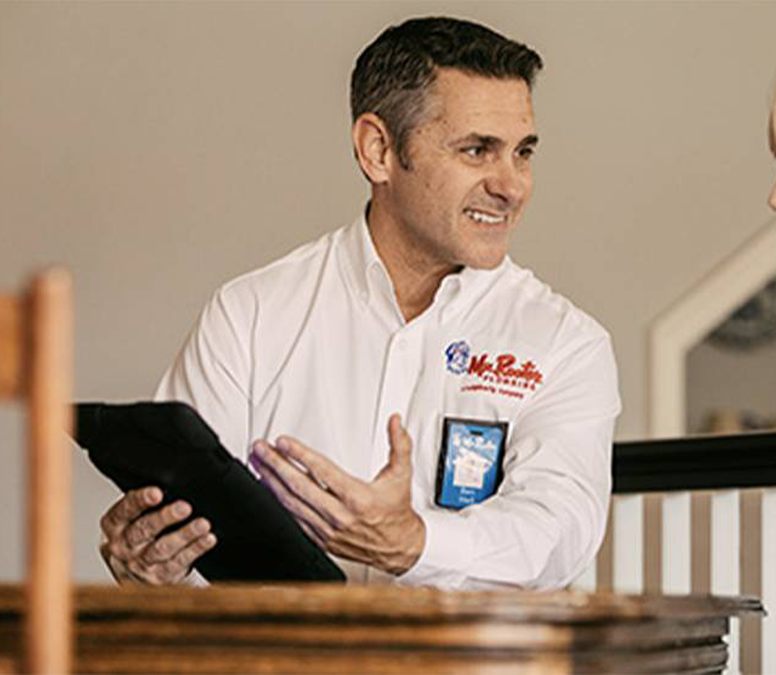Call This Wednesday to Get $50 Off Any service over $500
Do You Need a Local Plumber in Waco, TX?
Call us Now to Get $35 OFF.
Call This Wednesday to Get $50 Off Any service over $500
Do You Need a Local Plumber in Waco, TX?
Call us Now to Get $35 OFF.
.webp)
When we think about water quality, our first thought involves drinking water: We want the water we consume to be clean and free of harmful contaminants. Water quality isn’t just about what we drink, however. It affects nearly everything from cleaning and cooking to our showers and even our appliances. In fact, good water quality is essential not only for our health but for the efficiency and longevity of the plumbing systems in our homes.
While municipalities do a great job treating water to make it safe to use, homeowners may still need to take additional steps to protect their homes and health. Two popular solutions are water softeners and water conditioners.
In this brief article brought to you by Mr. Rooter Plumbing, we compare and contrast a water conditioner and water softener installation. If you still have questions or concerns, you are always welcome to call Mr. Rooter to consult with a member of our team.

Before we get into filtration, it’s important to understand the most common water quality issue: hard water. Hard water is water that contains high levels of minerals, primarily calcium and magnesium. While these minerals are not harmful to your health, they can wreak havoc on your home’s plumbing and appliances.
Hard water causes mineral buildup in pipes, showerheads, faucets, and appliances like dishwashers and washing machines. Over time, this buildup can reduce water flow, decrease appliance efficiency, and shorten the lifespan of your plumbing fixtures. It can also leave unsightly stains on sinks, tubs, and dishes while making soap and detergent less effective. Good luck cleaning that mess!
You might not be surprised to learn that water softeners address hard water. The water softener works by removing the calcium and magnesium ions responsible for water hardness and replacing them with sodium or potassium ions. This process is known as ion exchange.
When you have a water softener installed, you’ll immediately notice the benefits. Your soap will lather better, your skin and hair will feel softer, and you’ll no longer see the white chalky residue on your dishes or faucets.
One thing to note, however, is that water softeners do add a small amount of sodium to your water. For most people, this isn’t a problem, but those on low-sodium diets may want to consider alternatives.
A water conditioner, on the other hand, doesn’t remove minerals from the water like a softener does. Instead, it alters the behavior of the minerals so that they are less likely to stick to surfaces and form scale. This means that while the minerals are still present in the water, they are less likely to cause the problems associated with hard water.
Water conditioners can use different methods to achieve this goal. Examples include electromagnetic or catalytic processes which change the structure of the mineral ions so that they don’t stick together as easily. This makes water conditioners an appealing choice for those who want to reduce scale without the use of salt or chemicals.
In short, a water conditioner is low-maintenance, environmentally friendly, and doesn’t introduce additional sodium into your water. A water softener, however, is more effective and will offer more noticeable benefits in terms of soap efficiency, skin and hair softness, and protection for your plumbing.
For more specific recommendations, you can call Mr. Rooter Plumbing to consult with a plumber in Crawford. We are happy to schedule a face-to-face meeting or on-site visit.
Whether you need routine plumbing service or a new installation, the trained and uniformed plumbers at Mr. Rooter Plumbing are here to help. Call or message us today to get in touch!
Your drains play a huge role when it comes to home hygiene and comfort. Sadly,…
You may need faucet replacement services if you’re remodeling your space or your current…
Have you noticed reddish-brown or orange stains on sinks, tubs, toilets, and even clothes? Is…